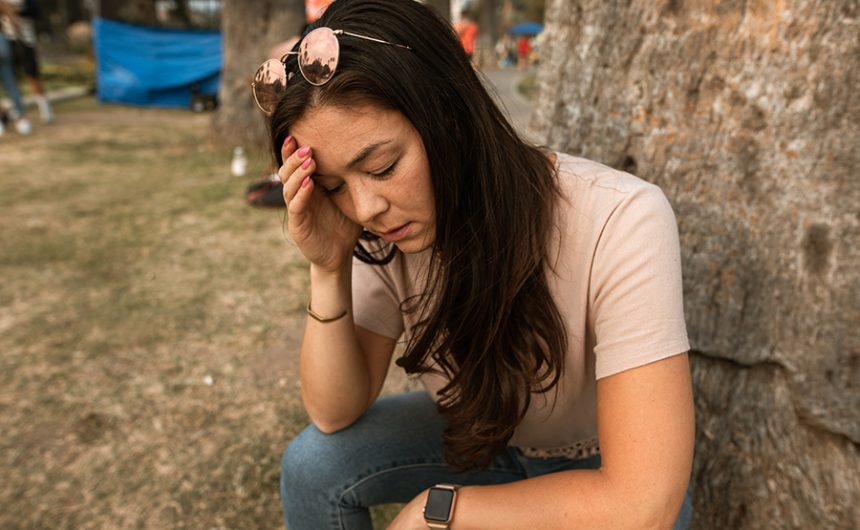Unbeknownst to many, there is a correlation between sleep and mental health, and as such, living with a mental health issue can affect how well you sleep. In turn, poor sleep can have a negative impact on your mental status.
See a pattern – or, better yet, a cycle – developing here?
The following list represents the ways in which sleep can be affected by notable psychological wellbeing problems.
- Anxiety – This can cause repetitive thoughts and worries that can keep you awake; you may even be stricken by panic attacks while trying to fall asleep.
- Depression/Seasonal Affective Disorder (SAD) – This can lead to sleeping more, including staying in bed for extended periods of time or sleeping more often; insomnia and/or sleep apnea can also be a cause of depression.
- Trauma – Any kind of trauma has the ability to cause flashbacks, nightmares or night terrors that have been known to disturb sleep patterns; in extreme cases, you may even feel uncomfortable or unsafe in the dark or in bed.
- Paranoia/Psychosis – To say these kinds of psychological wellbeing issues can make it difficult to sleep is something of an understatement; from hearing voices to seeing things you find disturbing or frightening, paranoia and/or psychosis must be tackled by a qualified medical professional.
- Mania – This issue often causes feelings of elation and energy, thus leading to problems sleeping (or even feeling fatigued); what’s more, racing thoughts can also keep you awake and cause varying degrees of insomnia.
- Psychiatric Medication – While not technically a part of this list of psychological issues leading to sleep problems, it is worth noting that certain types of psychiatric medication can cause a myriad of side effects including oversleeping, nightmares, disturbed sleep and insomnia; ceasing intake of psychiatric drugs can also lead to sleep problems.
So we can say, for sure, that sleep is closely connected to mental – and emotional – health, and has demonstrated links to depression, anxiety, bipolar disorder and other conditions. Indeed, both sleep and mental health are complex issues affected by a multitude of factors, but irrespective of that observation, there is strong reason to believe that improving sleep can have a beneficial impact on mental health (given their close association) and can be viewed as a component of treating a plethora of psychiatric disorders.
Additional Details
During sleep, brain activity fluctuates – that is, it increases and decreases during different stages of sleep that comprise the sleep cycle – with NREM (non-rapid eye movement) sleep yielding overall slower brain activity, though with quick bursts of energy. In REM sleep, brain activity ramps up rapidly, which is why this stage is associated with dreams of higher intensity.
Each stage plays a role in brain health, enabling activity in different parts of the brain to speed up or down, ultimately leading to better thinking, memory and learning. Sufficient sleep, especially in the REM stage, facilitates the brain’s processing of emotional information, and it appears that a lack of sleep is especially harmful to the consolidation of positive emotional content. This can influence emotional reactivity and mood, and is tied to mental health disorders and their severity – including the risk of suicidal behaviors.
Although further research is required to identify the somewhat diverse connections between mental health and sleep, the existing evidence we’ve studied demonstrates that there is a multifaceted relationship that can be influenced by a number of factors in any specific individual’s situation.
Call Sweet Sleep Studio at (913) 309-5963 if you wish to learn more about the connection between sleep and mental health.




